Silicone mask-wearing criminals in China spark security concerns; e-commerce platforms censor product searches
Checks by CNA found that silicone face masks can be delivered beyond China to other places in Asia like Singapore. But experts say there isn’t cause for alarm.
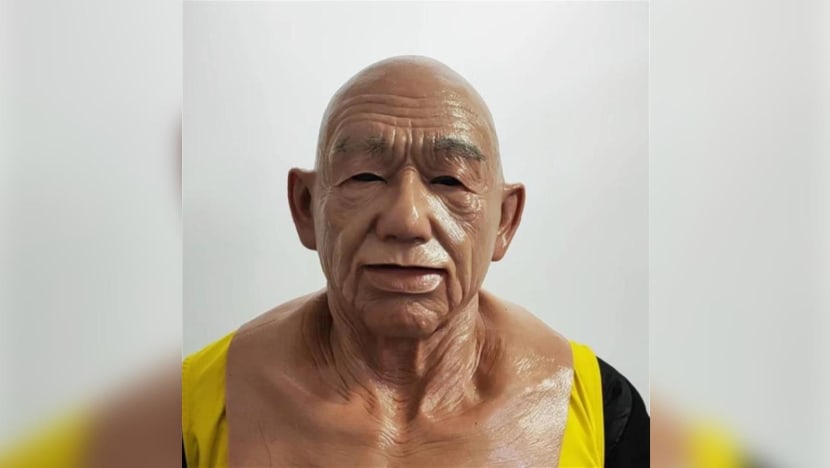
The silicone mask worn by a burglar in Shanghai. Such products have come under scrutiny in China after recent incidents involving criminals wearing them. (Photo: Shanghai Public Security Bureau Minhang Branch)

This audio is generated by an AI tool.
SINGAPORE: They’re often used in Hollywood, and are a recurring and possibly well-worn hallmark of the Mission Impossible films.
But realistic silicone face masks are now under the spotlight in China in the wake of recent incidents involving criminals wearing them, sparking calls for tighter oversight amid fears they could become the modus operandi for lawbreakers, especially considering how easily accessible they are.
Chinese e-commerce platforms like Taobao and Pinduduo have clamped down on the search for such masks as analysts warn the products could help criminals evade identification or even facilitate identity theft or impersonation by bypassing facial recognition systems.
Checks by CNA found that silicone face masks can be readily delivered beyond China to other places in Asia such as Singapore. But experts say there isn’t cause for alarm.
"I believe that if (such a mask is bought and) used to commit or attempt to commit a crime, then that certainly is going to be an offence,” said Mr Chung Ting Fai, founder of an eponymous law firm who specialises in intellectual property and business law in both China and Singapore.
"But at present there have been no such cases (in Singapore), so this has not been an issue,” he told CNA.
UNMASKING CRIMINALS
Silicone masks have drawn recent public attention and concern in China, after local media reported on several burglaries where the perpetrators made use of them.
In March, four homes in Shanghai were broken into and over 100,000 yuan (US$13,760) in valuables stolen. When police nabbed the suspect, they discovered that it was a man in his 40s who had disguised himself as an elderly person through a silicone mask.
Last month, a burglar broke into five rural households in eastern Jiangsu province, stealing 30,000 yuan worth of valuables. Local police say he allegedly disguised himself as an electrical worker, with a silicone mask on hand as a disguise to evade the cops if necessary.
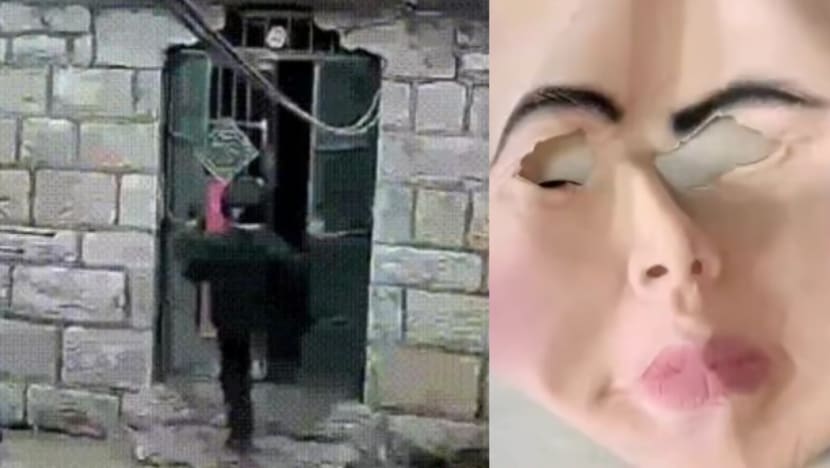
The cases have caused a stir online, with netizens alarmed by the use of such silicone face masks.
One commenter stated on Chinese social media platform Weibo: “Sellers should realise the risks associated with human face masks, comply with the law, and prevent tech products from being misused by greed.”
Another remarked: “It’s a human’s fault, not the mask.”
Yet another noted, “Science and technology is a double-edged sword; proper use can bring blessings to humankind, but inappropriate use could open Pandora’s box.”
Chinese scholars have also expressed unease with these realistic-looking masks.
According to the state-run Legal Daily, Mr Liu Jiong, an associate professor of criminal law at Xiamen University Law School, said such masks could help individuals evade monitoring and identification, complicating the task of identifying criminal suspects.
These masks could also be used to bypass facial recognition technology, enabling identity theft and other illegal activities, thus posing significant legal risks, he added.
SEARCHES CENSORED, BUT EASILY BYPASSED
Chinese e-commerce websites have censored searches for silicone masks amid the outcry, although to limited effectiveness.
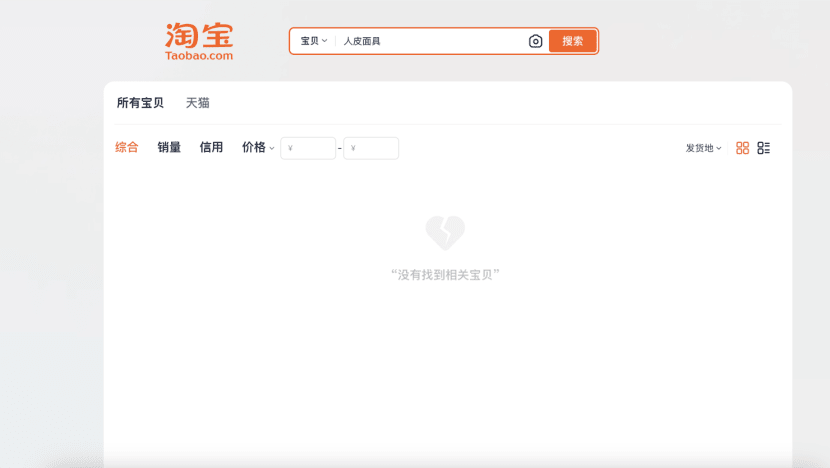
Checks by CNA on Jul 3 on platforms like Taobao, Pinduoduo and 1688 found that the term "human mask" or "ren pi mian ju" in Chinese was blocked, yielding zero results. But a swap of keywords to "silicone mask" or "gui jiao mian ju" still showed results.
There was a variety of silicone masks on offer, such as those resembling celebrities or television drama characters. Prices ranged from 19 yuan to 250 yuan.
These masks are not limited to delivery within China. CNA tested three different e-stores, all of which offer overseas shipping, including to Singapore.
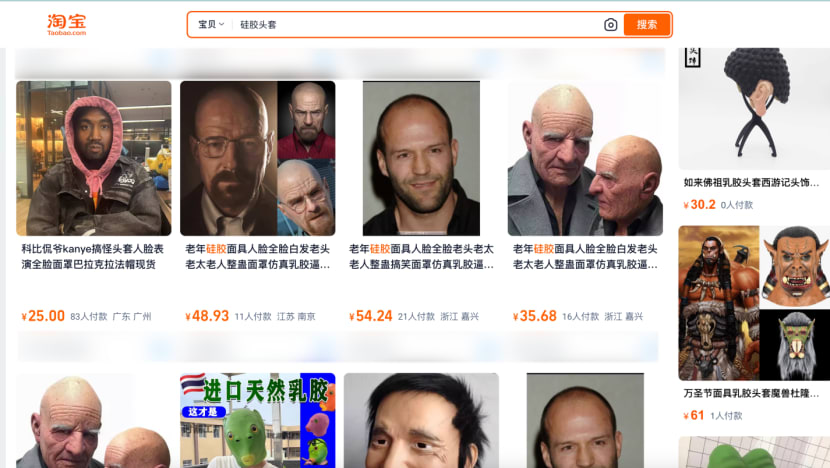
E-commerce platforms headquartered in Singapore also offer these masks. Checks by this journalist found at least 60 different listings on Lazada and Shopee, most shipped from China. The number of sales for each listing was largely under 10.
One China-based e-store told CNA the recent developments have not impacted them, as “no customers have inquired” about the product since its listing.
Another shop that ships from Indonesia said: “Every month, we have buyers purchasing it.”
Silicone masks are not banned in Singapore. Vendors have the right to import and sell them on various platforms as long as they comply with local laws and regulations.
Mr Chung, the legal practitioner, said that Singapore does not have specific comprehensive legislation governing e-commerce activities. At the same time, he stressed that the city-state has not seen any cases of silicone mask-wearing individuals going on a crime spree.
Associate Professor Wai Kin Kong from Nanyang Technological University’s (NTU) College of Computing and Data Science expressed caution over enacting regulations on silicone masks, as they could curb the efficiency of industries that need high-quality masks for testing and other purposes.
“There is a trade-off between security through regulatory measures and efficiency. If regulatory measures require approval from the government to buy a face mask from an approved vendor, there will be some delay in their work,” he told CNA.
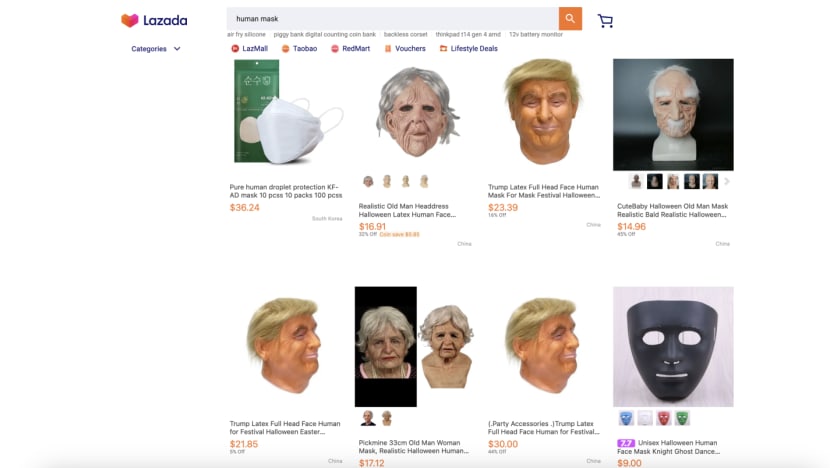
FACING UP TO PRIVACY CONCERNS
Silicone masks have raised privacy concerns in China, especially over their potential misuse in a country where access to phones, offices and even bank accounts can be safeguarded by facial recognition technology.
A Chinese influencer recently posted two videos - drawing 11,000 and 60,000 views each - showing how people wearing such masks successfully bypassed facial verifications to unlock mobile phones, access an office and even pay at a supermarket using Alipay.
Dr Kong said the risks of using masks to impersonate individuals have been recognised in the research community for years.
“These masks have been used to evaluate the accuracy of liveness detection methods, and competitions have been held to test the performance of various methods,” he added.
Dr Kong mentioned that only “highly skilled individuals” may be able to generate 3D models from 2D images.
"If some start using 3D models generated from 2D images to bypass face recognition systems, we will have more concerns, particularly with devices lacking high-quality liveness detection algorithms.”
CNA encountered vendors on Chinese e-commerce platforms offering customised services for silicone masks. According to Chinese media reports, prices for these customised masks range from 3,000 yuan to 25,000 yuan.
One merchant based in Guangzhou contacted by CNA said production would take a month.
When asked what information would be required, the merchant said: "If you want a more realistic result, you can come in person. If not, just provide us with photos of the person you want to replicate from different angles."

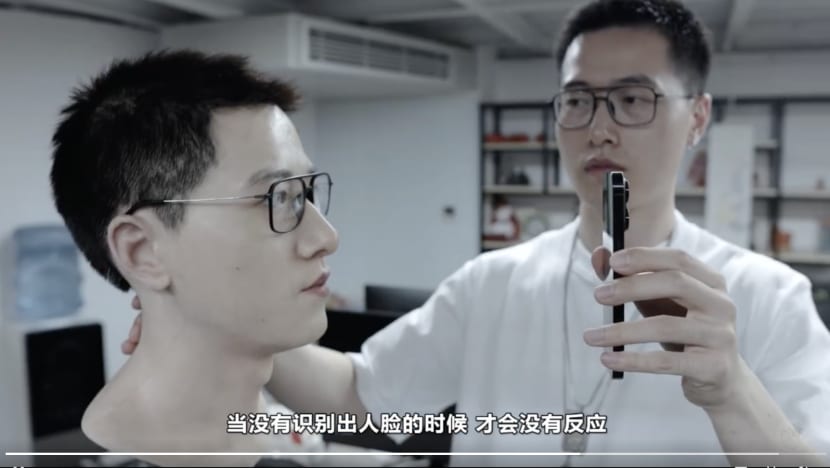
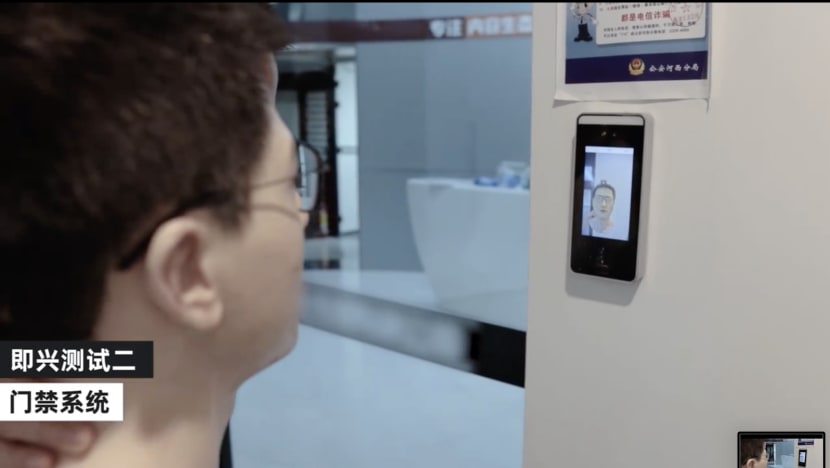
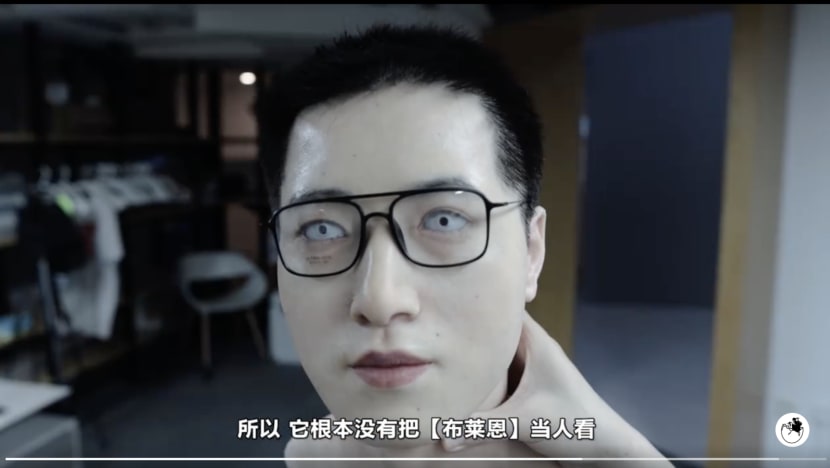
RUNNING AFOUL OF THE LAW
Chinese legal experts have warned against creating silicone masks imitating someone’s facial features - especially without their consent.
"Individuals who use such masks without permission should bear civil liability for infringing the right to reputation," said Professor Meng Qiang at the Beijing Institute of Technology Law School as reported by the state-run Legal Daily.
He pointed out that the mask vendors could also face legal action if they are found to have infringed on areas such as personal privacy, or if the masks were used for illegal or criminal acts.
Silicone face masks serve as “tangible carriers of facial recognition information”, wrote Zhongda Law Firm in a Jul 1 commentary on Weibo.
“Individuals who use such face masks without permission may be held liable for infringing others’ right to privacy.”
Last August, China’s cyberspace regulator issued draft rules overseeing the use and security of facial recognition technology, which has become widely used throughout China - for everything from rubbish collection to toilet roll dispensers.
The Cyberspace Administration of China (CAC) said facial recognition technology can only be used to process facial information when there is a specific purpose and sufficient need, and with strict protective measures.
The use of the technology will also require an individual's consent, and non-biometric identification solutions should be favoured in instances where they are equally effective.
Analysts say there are general safeguards people can take, be it in China or elsewhere.
When it comes to the security of personal devices - such as phones and laptops - that utilise facial recognition tech, experts say keeping them updated is key as the patches plug vulnerabilities and shield against malicious software.
Multi-factor authentication is also important, Mr Terence Siau, the general manager for Singapore at the Center for Strategic Cyberspace + International Studies, emphasised to CNA.
"Including an additional factor of authentication, whether through fingerprints, biometrics, or even simple passwords, can significantly prevent unauthorised access,” he said.
As for the potential misuse of photos, the advice given by Mr Chung is to exercise caution when sharing such images online.
"Nevertheless, in the practical world, this poses challenges for young people and others.”

















